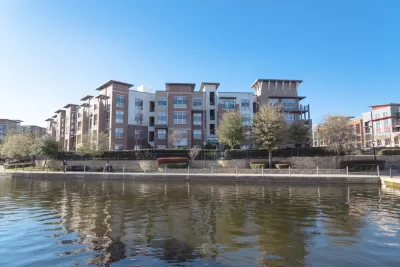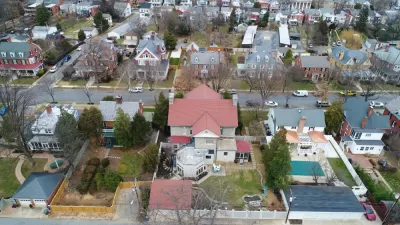In a new book, Hans Westlund and Tigran Haas argue that the global knowledge economy is radically reshaping urban development. Eventually, they say, it'll render meaningless our present notions of "urban," "suburban," and "rural."

Heralding the arrival of a new urban development paradigm, Hans Westlund and Tigran Haas' book In The Post-Urban World makes the case that "multifunctional city regions" connected in "global city networks" constitute the world's urban future.
The term "urban" itself, they argue, will become less meaningful as the global knowledge economy gathers human capital into dense regional amalgamations. That densification will blur the line between urban and suburban as multifamily becomes the norm in places previously restricted to single family dwellings. Transportation and telecommunications will increasingly facilitate those ends.
In such a future, Westlund and Haas see smaller cities and rural settlements fading away unless they're integrated into wider city regions. "The more peripheral cities, towns and rural areas suffer of lack of sufficient concentrations of the now most important production factor, human capital, which means that their labor markets remain small and the knowledge economy has difficulties to develop there."
FULL STORY: A New Perspective on Urban Development

Maui's Vacation Rental Debate Turns Ugly
Verbal attacks, misinformation campaigns and fistfights plague a high-stakes debate to convert thousands of vacation rentals into long-term housing.

Planetizen Federal Action Tracker
A weekly monitor of how Trump’s orders and actions are impacting planners and planning in America.

Chicago’s Ghost Rails
Just beneath the surface of the modern city lie the remnants of its expansive early 20th-century streetcar system.

Bend, Oregon Zoning Reforms Prioritize Small-Scale Housing
The city altered its zoning code to allow multi-family housing and eliminated parking mandates citywide.

Amtrak Cutting Jobs, Funding to High-Speed Rail
The agency plans to cut 10 percent of its workforce and has confirmed it will not fund new high-speed rail projects.

LA Denies Basic Services to Unhoused Residents
The city has repeatedly failed to respond to requests for trash pickup at encampment sites, and eliminated a program that provided mobile showers and toilets.
Urban Design for Planners 1: Software Tools
This six-course series explores essential urban design concepts using open source software and equips planners with the tools they need to participate fully in the urban design process.
Planning for Universal Design
Learn the tools for implementing Universal Design in planning regulations.
planning NEXT
Appalachian Highlands Housing Partners
Mpact (founded as Rail~Volution)
City of Camden Redevelopment Agency
City of Astoria
City of Portland
City of Laramie





























